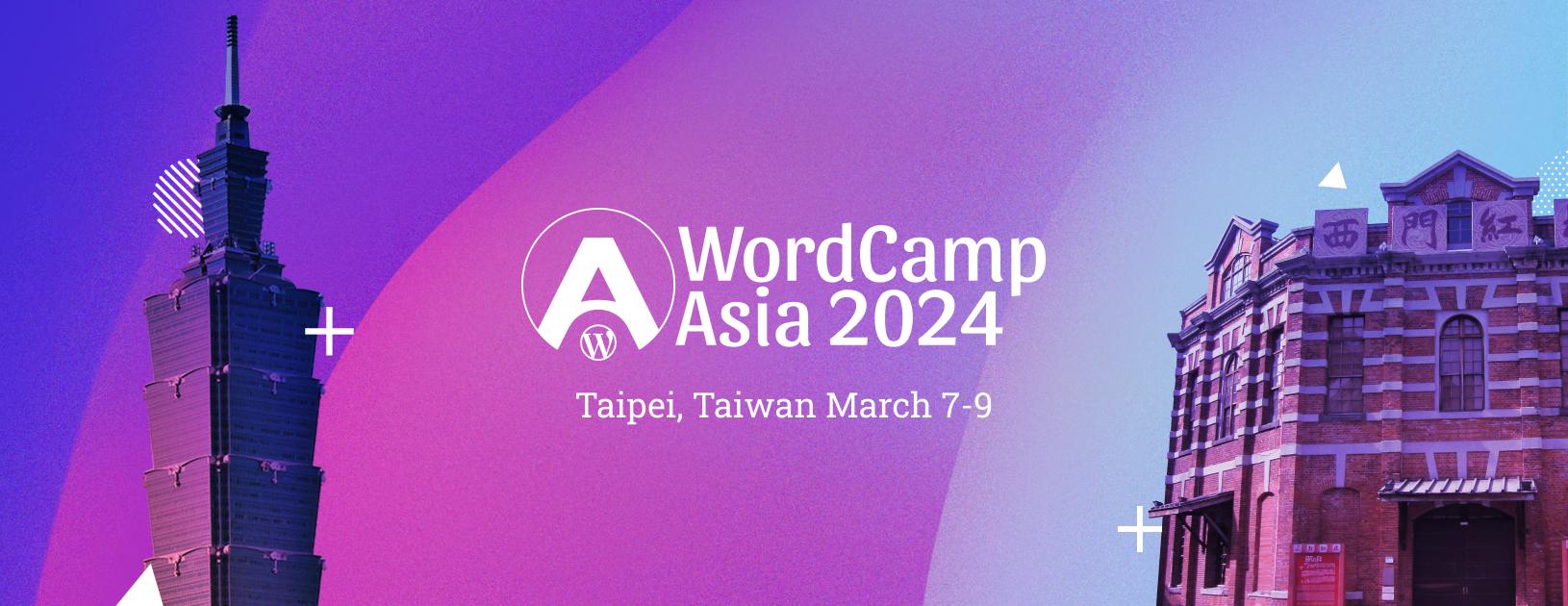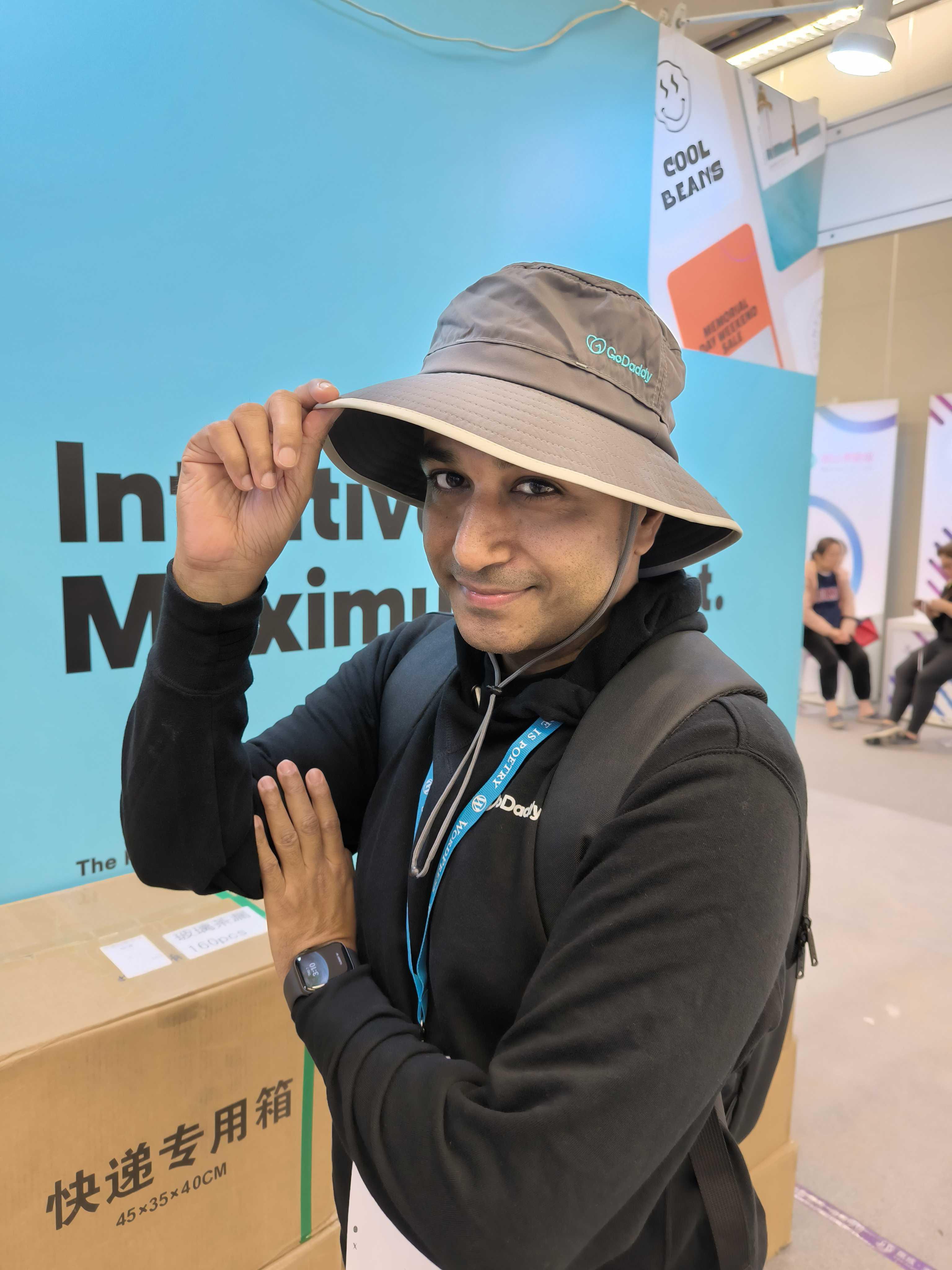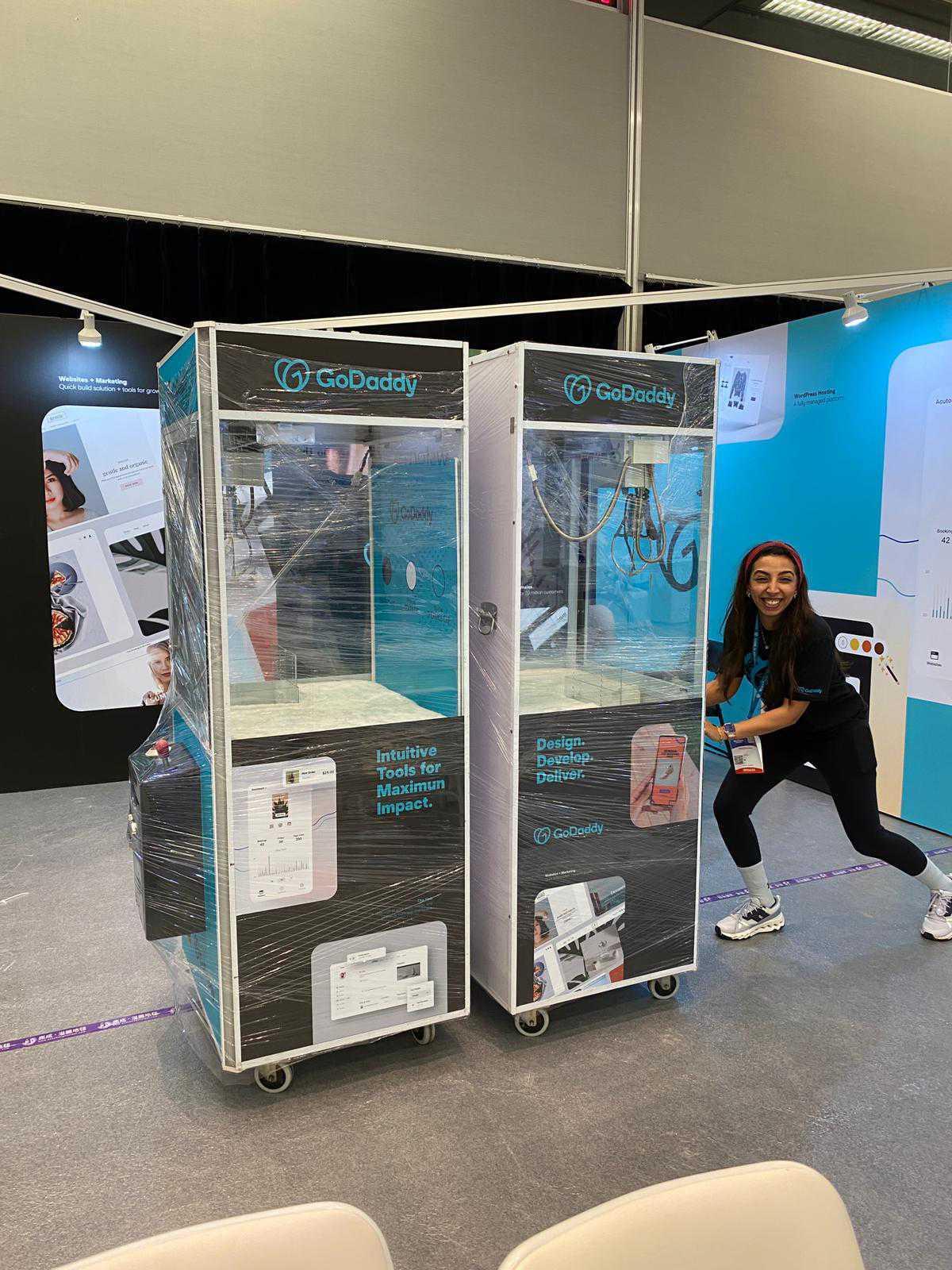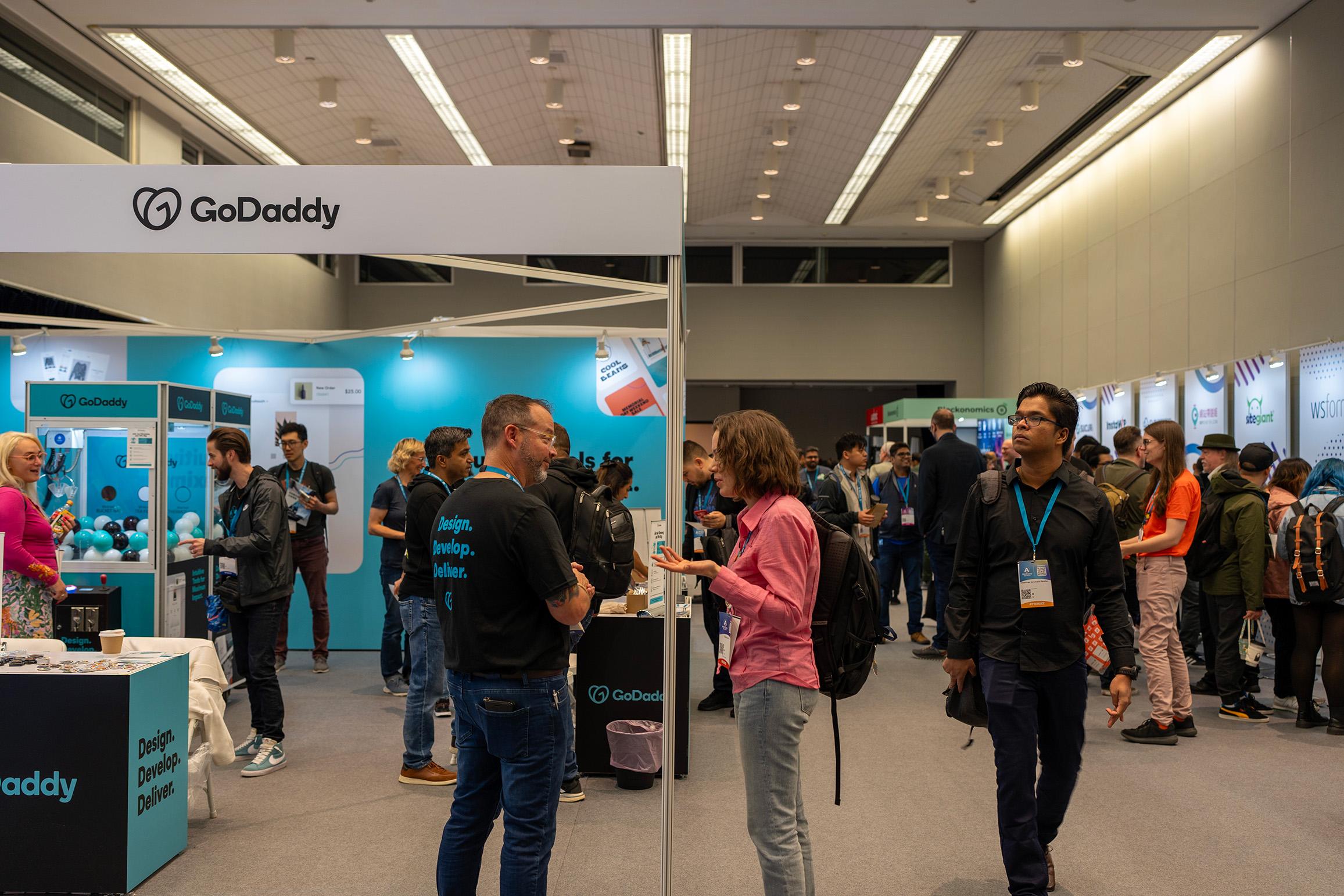One of the most thrilling events for WordPress enthusiasts is coming up on the calendar: WordCamp Asia 2024. From March 7 to 9 in Taipei, Taiwan, this event will be a hub of new ideas, learning, and community vibes. By the numbers so far, you'll find
- 38 Sponsors
- 56+ Speakers
- 47 organizers
- 500 contributors on the Contributor Day
- 2,000+ attendees
For a look back at last year's groundbreaking event, check out our coverage of the inaugural WordCamp Asia here.
Launch your business in minutes with GoDaddy Airo™
A Global WordPress Extravaganza
WordCamp Asia 2024 is more than just a conference. It's a worldwide festival of everything WordPress, attracting an estimated 2,000 attendees from more than 70 countries. Imagine the diversity, the stories, and the shared passion for WordPress that will fill the air!
Taipei: Where Tradition Meets Tech
Taipei is a city where old temples and new skyscrapers share the same space, showing a mix of tradition and progress. WordPress also has this balance, maintaining backward compatibility while adopting the newest web technology developments. This vibrant mix demonstrates WordPress's capacity to change while remaining faithful to its origins.

A Schedule Packed with Learning and Networking
The schedule for WordCamp Asia 2024 includes exciting talks and panel discussions. It aims to both inspire and educate attendees. Don't miss the after-party for relaxation and networking.
For updates on WordCamp Asia 2024, including for both in-person and online attendees, check back on this post. We'll share highlights, photos, and videos live. Our goal is to ensure full participation, whether you're in Taipei or joining from afar.
The People Behind the Magic
Every great event is powered by its people, and WordCamp Asia 2024 is no exception.
Organizers, a team of committed volunteers, work hard to make every part of the event, from talks to socials, engaging and impactful.
Meet Wapuu: The Face of WordCamp Asia 2024
No WordCamp is complete without its own Wapuu, and 2024's mascot is a delightful representation of the event's spirit and host city. This year's Wapuu is ready to welcome attendees with open arms and a smile as big as the WordPress community's heart.
Contributor Day: Where Collaboration Blossoms
Before the main event, Contributor Day offers attendees a unique opportunity to give back to the WordPress project. Whether you're a developer, designer, marketer, or writer, there's a place for you to contribute and make WordPress even better. Find your place with the New Contributor quiz.
WordPress is made possible by its thriving contributor community, many of whom found their way to participate by attending a WordCamp Contributor Day. Thank you to the many contributors present for WCAsia Contributor Day 2024.
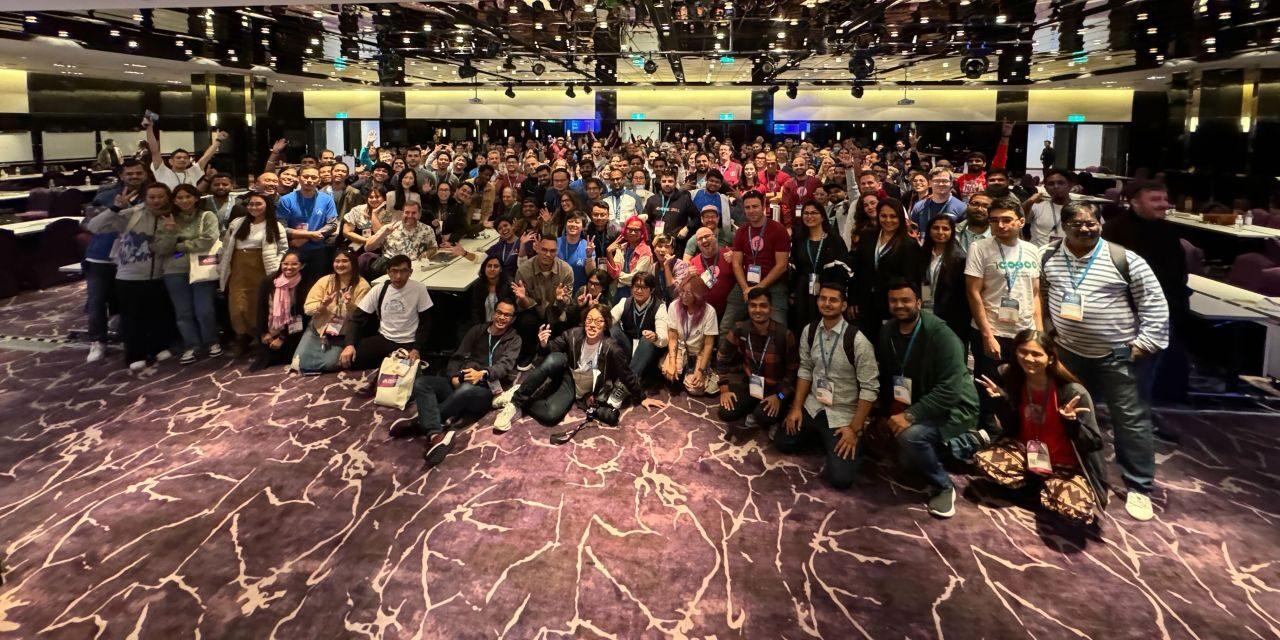
As the day kicked off, our team gathered for a quick hello before finding their home for the day among Photos, Core, Support, and Community Teams.
We asked the team to share why they contributed to various teams, and here's what they had to say:
How was your day Nada?
Amazing! I contributed several new photos and got my badge *wohoo* I also volunteered as a book in the human library and had interesting conversations with the attendees
Nada El Sharkawy
Senior Marketing Manager at GoDaddy
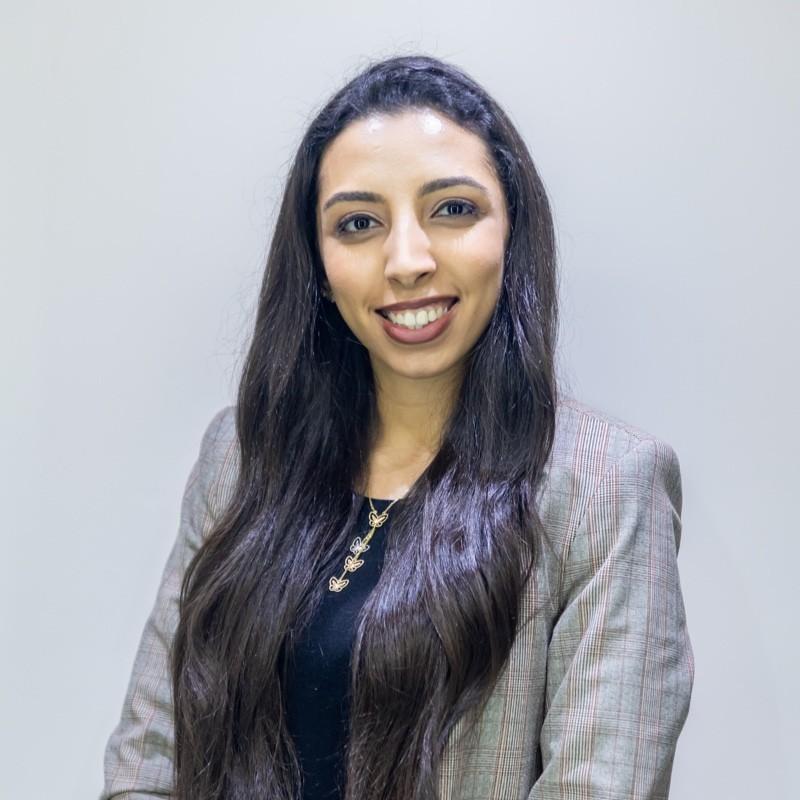
Learn more about Nada's experience launching a meetup group and get a sneak peek at her talk here.
Kira, what makes these days unique?
As a long-time Core contributor working daily on WordPress releases, contributor days still provide opportunities beyond the day-to-day routines.
It's a great opportunity to learn more about the WordPress Community, how it works, and to help move things forward. At big contributor days, it's possible to meet with many folks that make WordPress in person, and learn from them.
Kira Schroder
GoDaddy Core Contributor, Sr. Engineer

Drew, what's new?
Staying close to customers and WordPress users is critical for Drew's work. You'll usually find him with the support team at Contributor Days.
Getting into a groove in the forums like contributor days in the past.
Drew Wilde
Also serendipitously met and talked to someone involved with the data liberation project. We jammed on that for a bit.
Director of Product Management
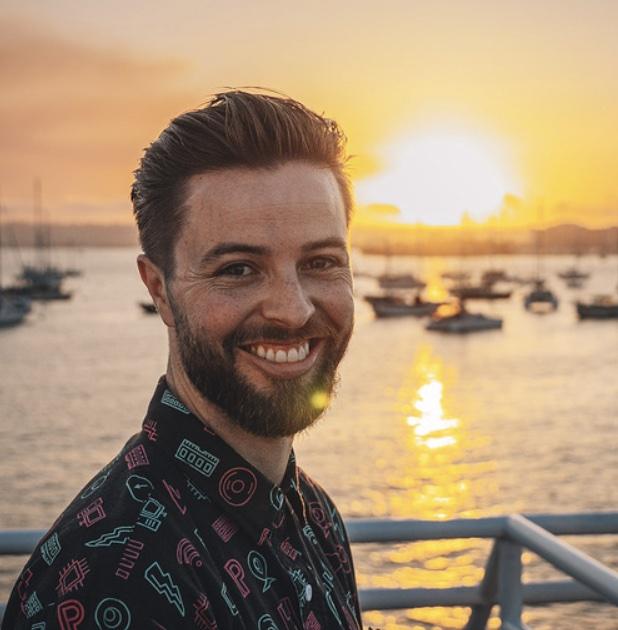
Justin, what's happening behind the lens?
Not only does Justin join us for many camps to connect with Web Developers and Designers, but he also lends his talents to our media team. While helping the Photos team, Justin shares why he gets involved. You can find some of his photos shared in the Photo Directory.
Attending Contributor Day at WordCamps is a fantastic way to dive into the WordPress community, where you can work alongside experts to improve the platform.
Justin Nealey
It's not just about coding; you can contribute in various ways such as design, documentation, or community support, making it a rewarding experience where you learn new skills and make a real impact, even as a newcomer.
Hub Product Manager

Adam and Community
Spend any time with Adam Warner and you'll soon see that the WordPress Community motivates and inspires him. As a representative of WordCamp sponsoring initiatives, it is vital to stay close to where the WordPress Community team and events are going.
Julie Golomb, Community Team Organizer, set the stage for our group. Our goal was to brainstorm events and topics to help foster more involvement in creating events that bring value to all. Our breakout group work focused on creating templatized docs for organizers to share with local sponsors detailing the reasons to sponsor these events, setting the expectation that these events may not create immediate financial ROI, but rather focusing on brand awareness and affinity and the "long game".
Adam Warner
Global Field Marketing Director
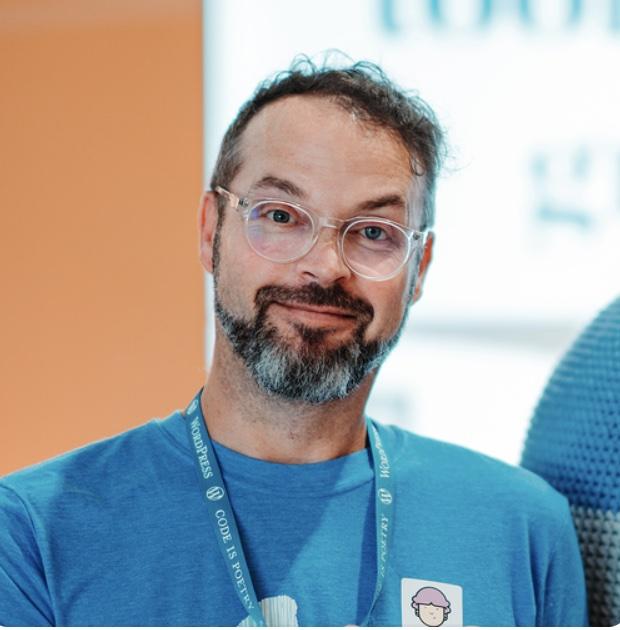
Gaurav and the future of WordPress
When talking with Gaurav, you'll quickly learn that he is always thinking about the future of WordPress, from its people to the software.
The next gen events that are coming up and the new audiences it’s trying to attract
We ideated about what can drive the younger generation to join the WP community and how can events be more valuable to attendees.
Gaurav Nakul
India Go To Market Lead
Ka Leng, how was your first Contributor Day?
Do you remember your first contributor day? We welcomed Ka Leng to the WordPress community in grand style today.
It was a very fruitful day and I love the energy of the discussion! The table leads shared so much from their experience of organizing meet-ups in their cities, and we were planning the possibilities to reviving WordPress communities in Singapore and Lithuania. I would love to organise WordPress meetups!
Ka Leng Ler
GoDaddy Global Social Media, Content & Digital Strategist
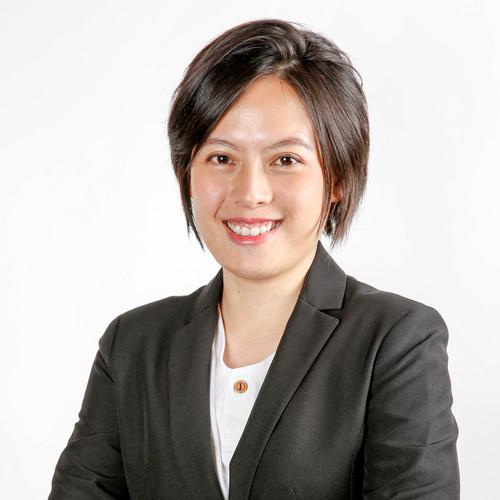
Auch what brings you?
What brings someone to Contributor Days? Auch shares the keys to connecting with the WordPress Community.
Get to know people in your interest groups up close and personal. You can ask questions and hear about other members experiences
Auch Lim
GoDaddy International Marketing Manager
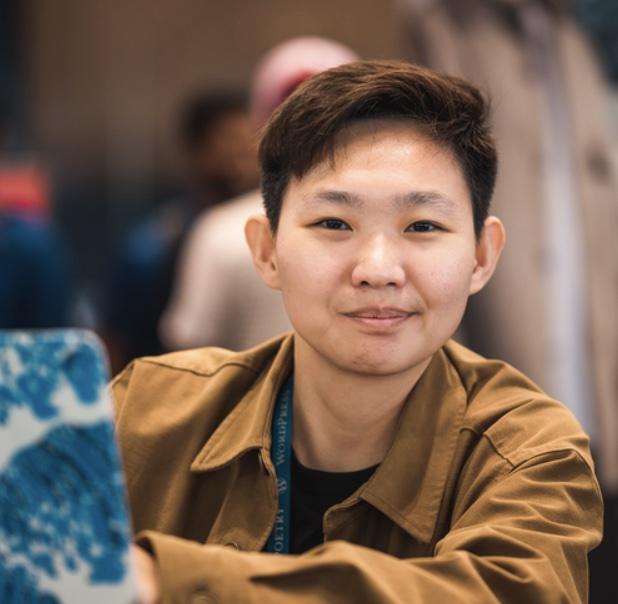
Day 1
Whether in person or online, you cannot catch every session. Tune in online now or to catch the replays across four rooms and workshops.
Noel Tock: The Future of WordPress
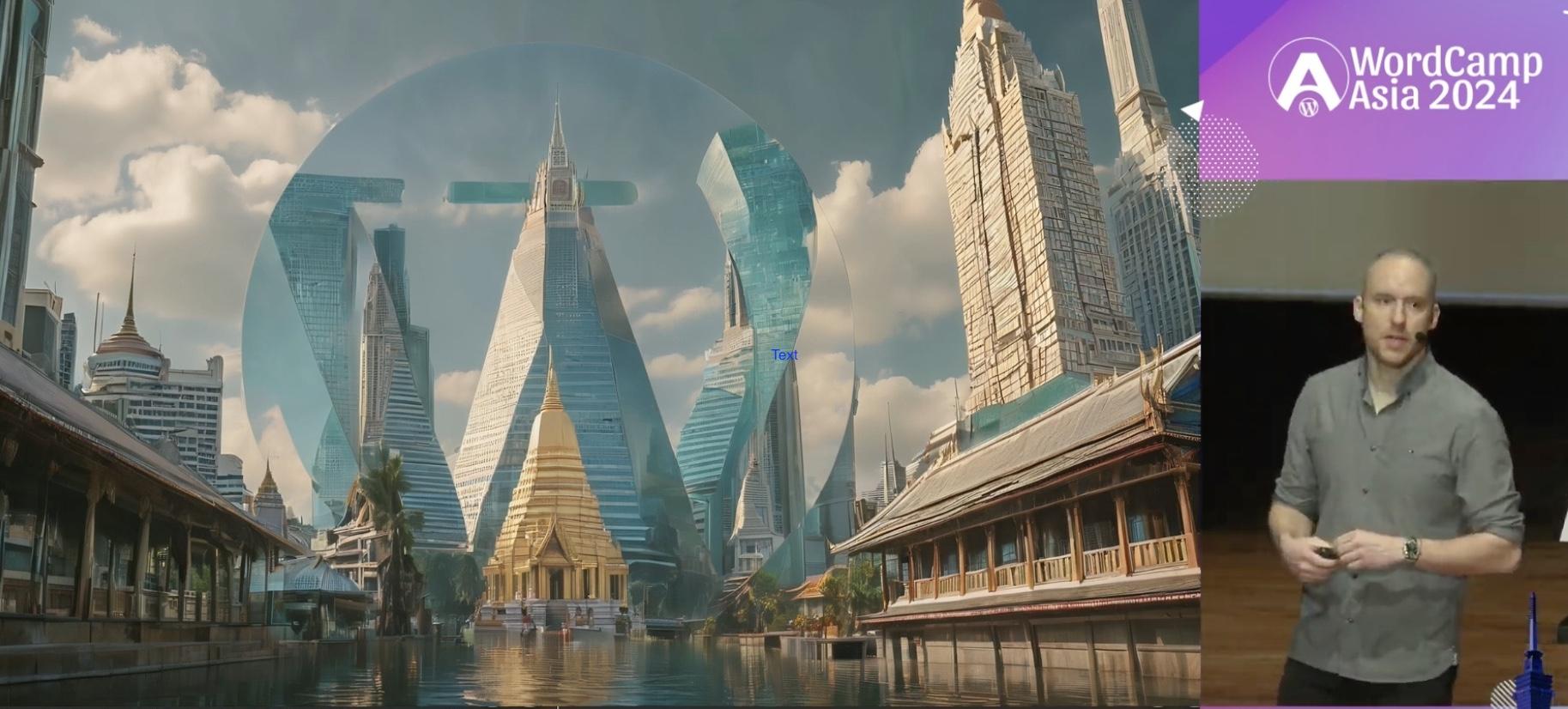
In an insightful keynote, Noel Tock, CGO of Human Made, presented a compelling vision for the future of WordPress. His talk delved into the platform's evolution, current challenges, and the roadmap ahead, offering a blend of data-driven analysis and strategic recommendations for WordPress's journey forward.
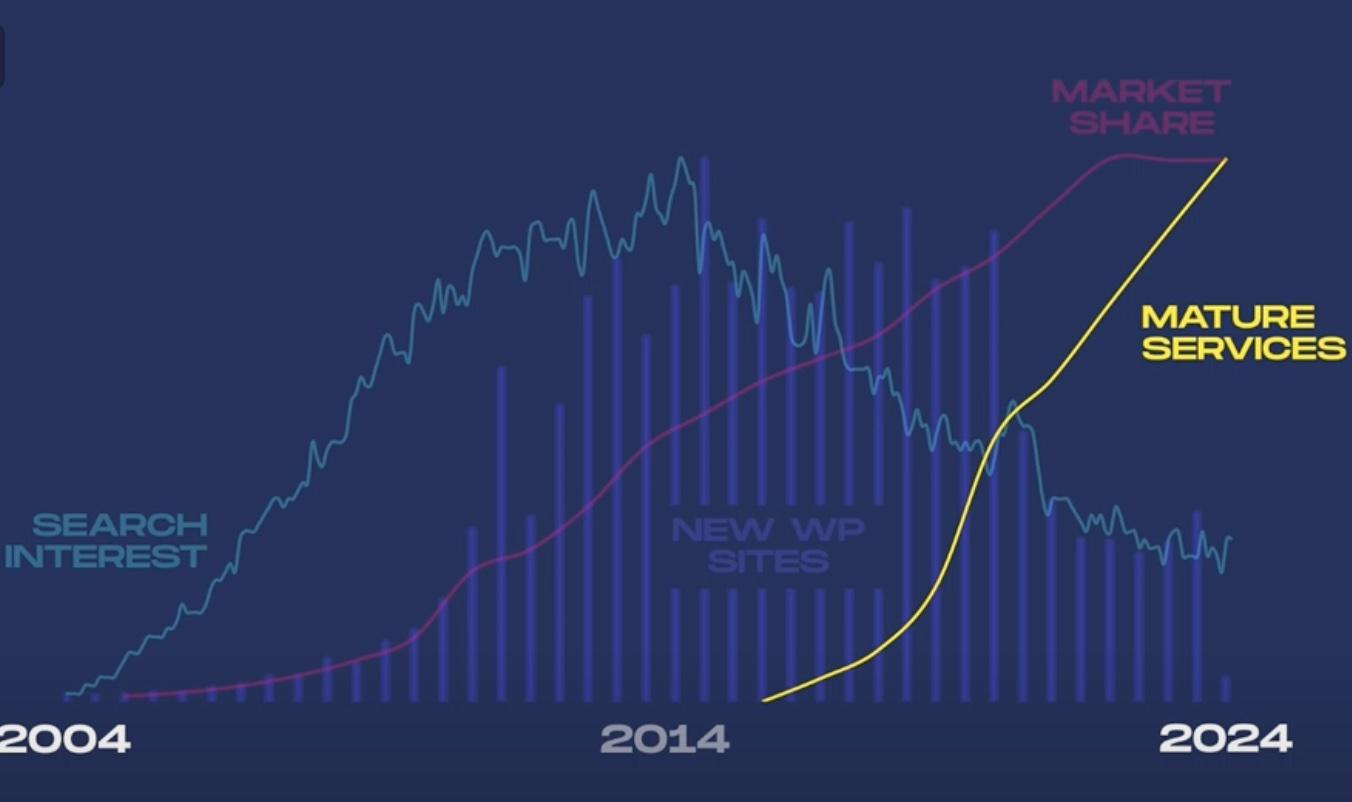
Noel began by addressing the common reliance on the W3Techs statistic that pegs WordPress's web dominance at 43%. While impressive, this figure doesn't fully capture growth and market presence dynamics. Noel advocates for a broader metrics approach to gain a deeper understanding, citing sources like the WP Engine Partners Program and Codeable Experts. These metrics, he argues, provide a clearer picture of WordPress's status and future potential.
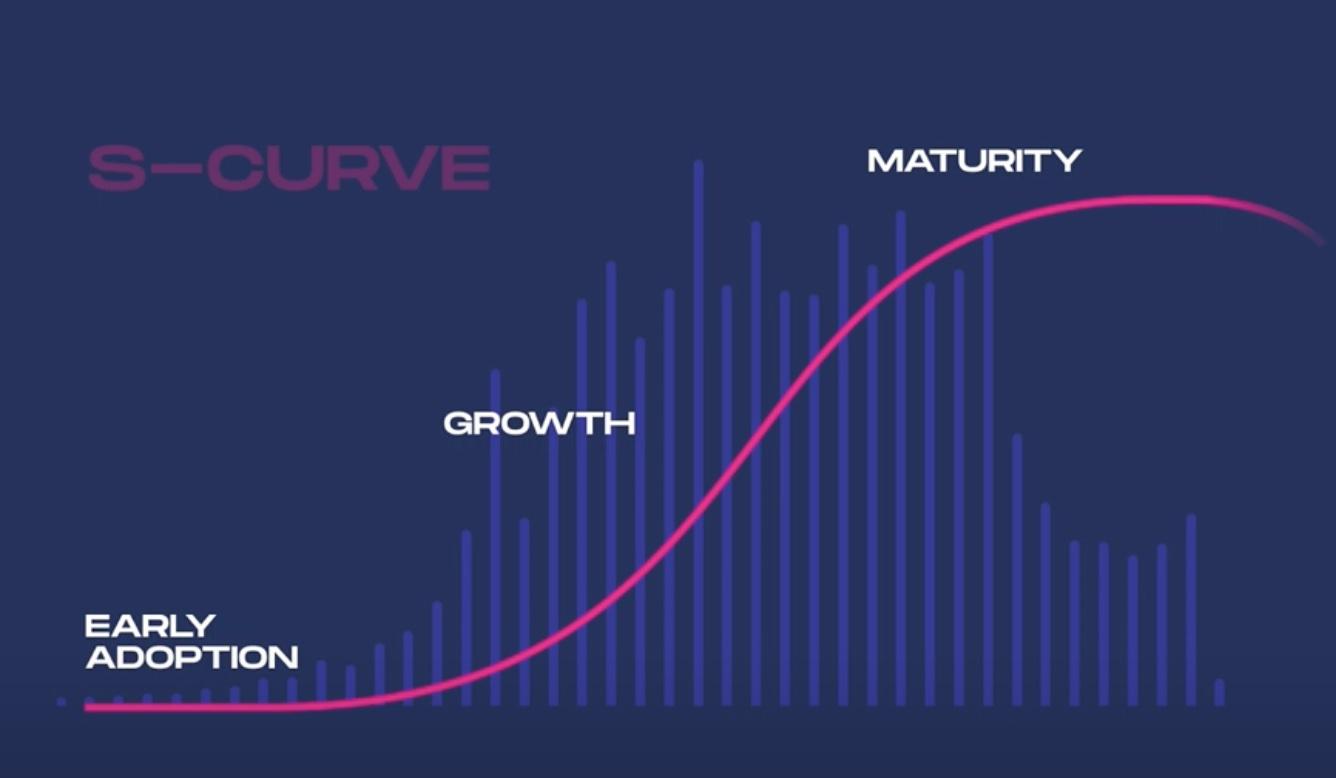
Navigating Maturity and Market Perception
According to Noel, WordPress is at a critical maturity stage and is often branded as "monolithic" by competitors. This perception overlooks WordPress's adaptability and its ecosystem's breadth. Noel pointed to Dries Buytaert of Drupal, who highlighted the ongoing debate between traditional CMS platforms transitioning to headless configurations and the JAMStack approach of piecing many layers together in his article: The new old: Jamstack and MACH's journey towards traditional CMS concepts. This tension underscores the need for WordPress to evolve and adapt continually.
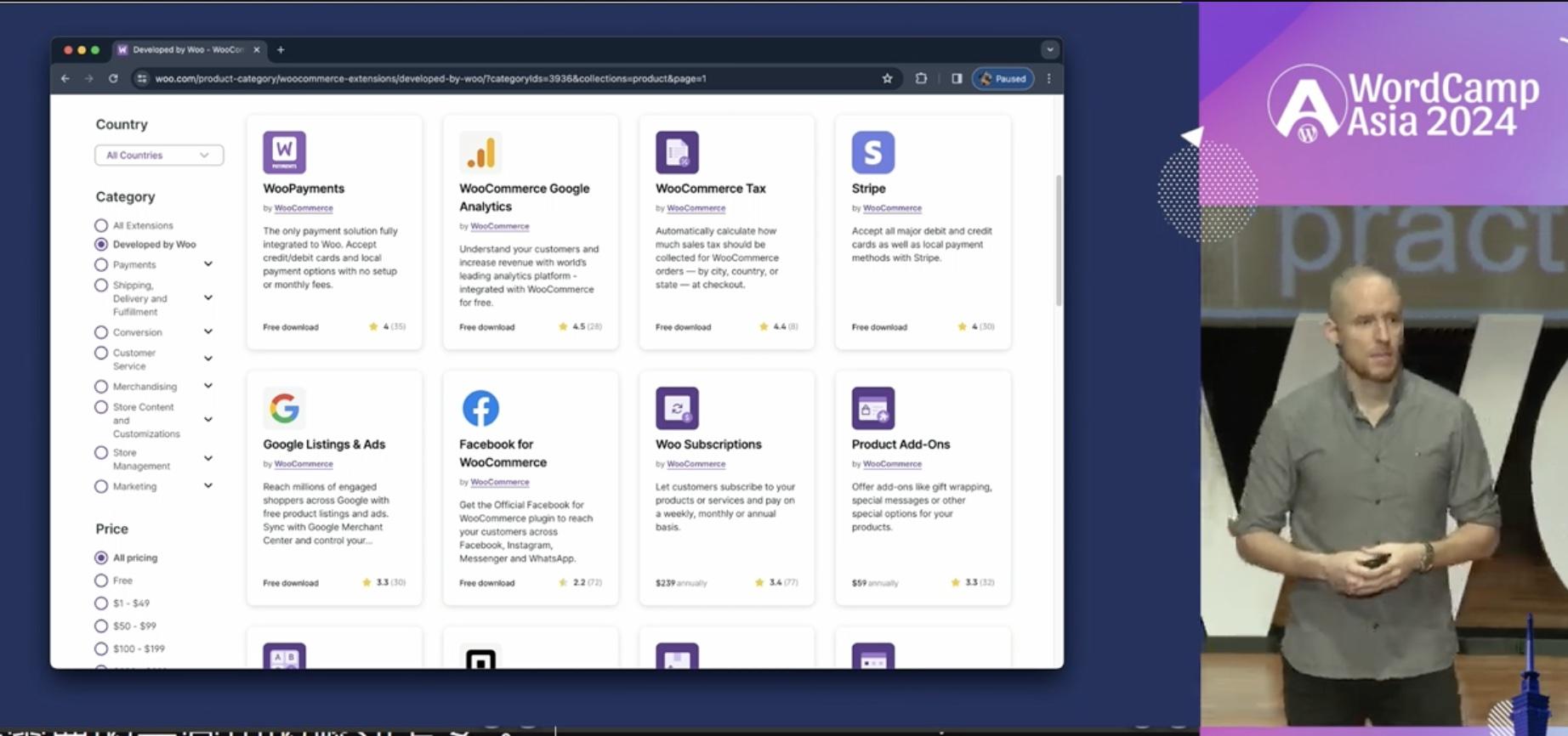
Emphasizing Integration and Consistency
A significant portion of Noel's keynote focused on the essential role of integration in WordPress's future. To remain relevant and competitive, WordPress must conduct thorough market research to identify and implement critical integrations. Noel underscored the importance of consistency across documentation, UI/UX, and overall user experience, suggesting that these areas are crucial for improving WordPress.
Integration can be about how things connect to WordPress, but also how WordPress connects to other things.
Moreover, Noel discussed connecting various tools and platforms to WordPress, enhancing its role as a central web development and management hub. He believes this approach can streamline processes and improve efficiency for users across the spectrum.
We can chain or connect AI agents together to create fast low or no-code options. WordPress has the unique opportunity to be the connection between many automation tools. Noel encourages us to look at GitHub CoPilot Developer Satisfaction Survey. WordPress can do that for content creators and no-code developers. We could also extend that to plugins and themes, providing end-to-end automation.
Bridging Core and Community
Central to Noel's message was the idea that the issue isn't with WordPress Core itself but rather the gap between Core and the market. Addressing this distance ensures WordPress's growth and relevance in an ever-evolving digital landscape.
WordPress Core is not the problem. It is the distance between Core and the Market.
A Call to Action
Noel's keynote culminated in a call to action for the WordPress community. As WordPress navigates its path forward, it's time for boldness, innovation, and a collective effort to usher in a new era for the platform. By focusing on integration, consistency, and reducing the gap between Core and the market, WordPress can continue to thrive as a leading web platform.
As we reflect on Noel Tock's insights, it's clear that the future of WordPress lies in embracing change, prioritizing user needs, and fostering a community-driven approach to innovation and growth.
Contributions are oxygen for the WordPress project
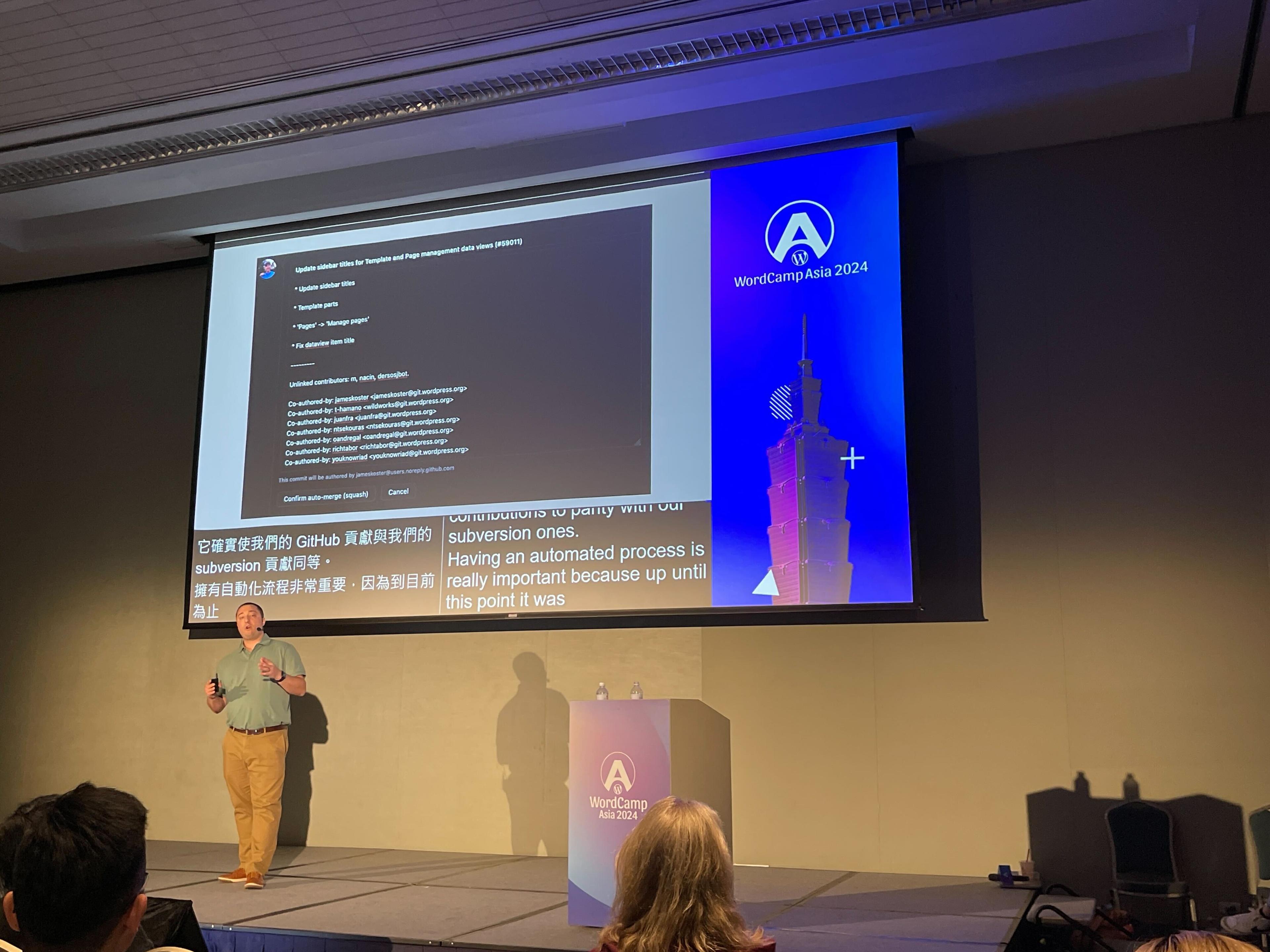
In his talk, Properly Recognizing Contributors in Large Open Source Projects, Jonathan Desrosiers shared why contributors are vital to sustaining WordPress.
We asked Drew Wilde for his key takeaway. Drew ponders, "How do we get more substantive quantitative data on how recognition plays a role in contributions?" For that, we can look to the Team Dashboards initiative. Work is underway to better acknowledge all contributions to the WordPress project and elevate opportunities and needs.
We work with contributors and must realize that our contributions to WordPress are vital for the long-term success of the open-source project.
Building a career in WordPress while raising seven kids
Miriam Schwab, the esteemed Head of WordPress Relations for Elementor, delivered an engaging presentation on her personal and professional journey within the WordPress community. Schwab, a mother of seven, highlighted the challenges and triumphs of balancing a bustling family life with a burgeoning career in technology. She touched upon the critical importance of community support, flexibility, and the empowering opportunities that WordPress and open-source culture offer individuals seeking a harmonious work-life balance. Miriam's narrative underscored the significance of personal choice and the diverse paths to success, emphasizing the empowering aspect of WordPress in facilitating such journeys. Her notable quote, "WordPress, I fell into it, but it ended up being a wonderful enabling choice for many reasons," encapsulates her gratitude and the serendipitous nature of her career trajectory.
The session shared Miriam's story and highlighted a broader discussion on integrating professional and personal lives, particularly for parents in the tech industry. The presentation called for a reevaluation of systemic support for working parents and promoted a more inclusive approach to career development. Attendees were encouraged to leverage their unique experiences and the supportive WordPress community to navigate their paths toward personal and professional fulfillment. Miriam’s journey from founding a WordPress development agency to her influential role at Elementor illustrates a roadmap for merging passion with a career, inspiring participants to contribute to WordPress in ways that resonate with their life goals. This approach highlights Miriam's impactful experience and reinforces the collective call to action for the community to explore and embrace their individuality in contributing to WordPress's diverse and inclusive ecosystem.
Make (All) WordPress (Events) Accessible
Joe Simpson, a WordCamp Santa Clarita Valley organizer, took the stage to share a deeply personal and inspiring talk on enhancing accessibility in WordPress events. Drawing from his own experiences, Simpson underscored the transformative impact of WordPress on his recovery and professional growth, making a strong case for the necessity of inclusive events. He shared his journey towards advocating for accessibility within the WordPress community, highlighting how accessible WordCamps have broadened participation and enriched the community by ensuring everyone has a seat at the table. With insights on organizing events catering to various needs, from physical to digital inclusivity, Joe's session was a compelling call to action for making WordPress gatherings welcoming for all.
Joe's approach was practical and visionary, offering a blueprint for integrating comprehensive accessibility features into event planning. He emphasized that contributions are the lifeblood of any open-source project and that inclusivity strengthens collective intelligence. By advocating for detailed planning around venue accessibility, digital information access, and creating a welcoming environment for every attendee, Joe's message was clear: inclusivity leads to a stronger, more connected community. His rallying cry, urging the community to take actionable steps towards hosting more accessible events, resonated deeply. It highlighted the ongoing need for awareness, education, and advocacy in making the WordPress ecosystem inclusive for everyone, reinforcing the idea that we're indeed smarter and stronger together.
Shaping the future with WordPress women
On International Women's Day, WordCamp Asia 2024 hosted a pivotal panel discussion led by Angela Jin. This session highlighted women's experiences in the technology sector, specifically within the WordPress community. The panel, comprising Chiaki Kouno, Hannah KAO, and Olga Gleckler alongside moderator Angela Jin—a staunch advocate with over a decade in diversity, equity, inclusion, and belonging initiatives—provided a powerful platform for discussing the strides and struggles of women in tech. It emphasized the crucial role of inclusion, described as the practice of ensuring all members of an organization can contribute meaningfully, underscoring WordPress's significance as a tool for empowerment and opportunity.
The dialogue spanned personal anecdotes from the panelists, reflecting on how their diverse backgrounds have shaped their advocacy and career paths. It also tackled the broader issues of gender biases and societal expectations that often hinder women's progress in tech environments. With a collective call for allyship and actionable takeaways to foster a more inclusive and equitable workplace, the discussion underscored the need for ongoing efforts to dismantle biases and support women’s participation in tech. Highlighting WordPress's potential to provide avenues for women and non-profits, the panel encapsulated a message of hope and empowerment on a day dedicated to celebrating the achievements of women worldwide, encouraging the community to contribute towards a more inclusive tech industry.
From independence to integration: The journey of being acquired
Chaya Oosterbroek, Yoast's COO, navigated through the intricate experience of Yoast’s acquisition. She highlighted the journey's multifaceted nature, from initial considerations to the strategic and cultural integration post-acquisition. Focusing on the WordPress ecosystem, Oosterbroek emphasized the significance of acquisitions for business diversification, market-entry, and technological advancement. Her insights into aligning with a partner that cherishes similar core values, such as a commitment to open source and ethical business practices, provided a roadmap for maintaining integrity during growth.
Oosterbroek's discussion on the importance of cultural compatibility and shared values with Newfold Digital resonated deeply, underscoring the pivotal role of company culture in the success of mergers and acquisitions. By sharing Yoast's challenges and triumphs throughout the process, she offered a case study on the potential impacts of such business transitions on the WordPress community. The narrative highlighted the operational aspects of being acquired and addressed the broader implications for the ecosystem, including preserving community engagement and core principles amidst corporate changes. This session stood as a call to action for the WordPress community to consider acquisitions to extend the reach and enhance offerings, all while staying true to the foundational values of open source and community support.
Catching Big Fish: How to catch and retain a WordPress enterprise client
Siobhan McKeown's presentation at WordCamp Asia 2024, "Mastering the Enterprise Sales Journey," offers invaluable insights applicable to web designers and developers at smaller agencies aiming to scale their operations and attract enterprise-level clients. McKeown emphasizes the critical nature of understanding your ideal enterprise client, including industry specifics, company size, and geographical location, suggesting a strategic approach to identifying and engaging with potential clients that align with your agency's expertise and capabilities. Networking and establishing a professional presence are highlighted as key strategies, encouraging agencies to showcase their WordPress and open-source proficiency not just at WordCamps but also at industry-specific gatherings where potential clients may be present.
For smaller agencies, transitioning from smaller projects to enterprise engagements demands patience and a comprehensive grasp of the enterprise sales cycle's complexities. McKeown's advice to treat enterprise sales as a marathon, focusing on enriching every client interaction, can serve as a blueprint for developing long-term relationships with enterprise clients. Moreover, the emphasis on contributing to the WordPress community and sharing knowledge positions community involvement as a powerful tool for demonstrating expertise and building credibility in the enterprise space. This presentation not only motivates agencies to refine their sales strategies but also underscores the importance of leveraging strategic networking and community engagement to effectively meet the needs of potential enterprise clients.
How to counter arguments from developers, designers, and managers against accessibility
Anne-Mieke Bovelett’s presentation, "Bending Arguments Against Accessibility," delivered at WordCamp Asia 2024, is a compelling call to action for web designers, developers, and stakeholders to prioritize accessibility in their projects. With over 25 years of experience in web development and digital accessibility, Bovlet effectively dismantles common objections to accessibility, advocating for empathy and understanding as foundational elements in recognizing the broad benefits of accessible design. Her approach to making accessibility a relatable concern leverages everyday experiences to highlight the unnecessary barriers encountered by users with disabilities, extending the conversation to include neurodiversity and age-related considerations, thereby broadening the scope of who benefits from accessible design practices.
Bovelett’s strategies for overcoming resistance involve emphasizing the economic, social, and legal incentives for adopting accessible web practices, showcasing accessibility not just as a matter of compliance but as a cornerstone of inclusive design that enhances user experience for all. Her notable quotes underline the dual motivations behind changes—altruism and self-interest—while advocating for a shift in perspective that views accessibility as integral to quality web design. By urging the inclusion of accessibility from the start of a project and highlighting resources that simplify its implementation, Bovelett champions a more inclusive web. This presentation serves as a crucial reminder of the importance of community education, resource sharing, and collective effort to ensure the web is accessible to everyone, urging WordPress professionals to lead by example in making accessibility a priority in their work.
Converting Walled Gardens into Community Gardens
Josepha Haden Chomphosy's presentation critically examines the digital landscape's exclusivity and advocates for a more open, inclusive future. Drawing an analogy between the exclusivity of walled gardens—spaces that are beautiful yet inaccessible to many—and digital platforms that limit user freedom, Chomphosy underscores the value of community gardens as a model for the digital world. Here, she champions the principles of accessibility, user rights, and active community engagement as foundations for a more inclusive and collaborative digital ecosystem, directly challenging the WordPress community and the broader tech industry to move away from proprietary restrictions and towards collaborative, accessible platforms.
Through her discussion, Chomphosy critiques the limitations imposed by proprietary systems and provides a visionary framework for fostering community involvement and breaking down participation barriers. By highlighting strategies for engaging more deeply in open-source projects like WordPress, she calls for a shift towards systems that empower users and developers alike. The presentation is a call to action and a blueprint for the WordPress community to lead by example in promoting openness, inclusivity, and accessibility. This approach enriches the WordPress ecosystem and sets a precedent for the broader tech industry, advocating for a future where digital spaces resemble community gardens—open, inclusive, and thriving with collective effort and shared knowledge.
Redefining Code Quality: A Journey Towards Bug-Free Development
Alain Schlesser's presentation delves into the pivotal role of code quality in WordPress development. Schlesser, a respected WordPress engineer and consultant, articulates a comprehensive approach to elevating code standards across WordPress plugins and themes. By emphasizing the multi-dimensional nature of code quality—including readability, maintainability, and performance—he advocates for a development ethos that transcends mere functionality to ensure longevity and ease of management.
The session underscores the utility of automated testing, code reviews, and adherence to coding standards as essential tools for maintaining high-quality code. Schlesser explores how continuous integration and deployment (CI/CD) pipelines can streamline the quality assurance process, facilitating regular checks and automating testing to identify and address issues promptly. He champions a community-centric approach to coding standards, encouraging WordPress developers to engage actively in discussions and contribute to the evolution of best practices within the ecosystem. Schlesser's insights challenge developers to rethink their project development approach and highlight the collaborative effort required to achieve and maintain high code quality standards, pointing towards a future of more reliable, bug-free WordPress projects.
Day 2
Rounding out the event, our second day of sessions will conclude with a Q&A from WordPress co-founder Matt Mullenweg. Catch all the sessions here:
Insights from WordPress Contribution: What Makes Us Impactful
Naoko Takano's presentationserved as a compelling narrative of her personal journey within the WordPress ecosystem, from a user to a prominent contributor and organizer. With decades of experience, Takano provided a unique perspective on the evolution of WordPress contributions and their profound impact on the platform and its community. She navigated through the nuances of contributing effectively, highlighting the tangible benefits of community engagement and the intrinsic rewards of participation.
Takano addressed the common challenges contributors face, such as finding a starting point and sustaining involvement, while emphasizing the "Five for the Future" initiative, which encourages dedicated resources to WordPress development. Her insights testify that WordPress thrives on community effort—"a project for the community, by the community." For those new to contributing, she recommended starting with community events and the Make WordPress platform and for veterans to set personal goals and mentor newcomers. This presentation not only illuminated the path to impactful contribution but also underscored the collective responsibility of the WordPress community to nurture and sustain the ecosystem, inviting every individual to engage actively and contribute to shaping the future of WordPress.
Legal Implication on the Use of AI Tools: From Data Protection to Intellectual Property
Helen Tung's presentation offered an in-depth exploration of the legal intricacies surrounding the burgeoning field of artificial intelligence. As a founder of NewSpace 2066 and a seasoned expert in international law and emerging technologies, Tung shed light on the pressing legal challenges and ethical considerations accompanying AI advancement. Her discussion underscored the current legal vacuum in AI-specific regulation, emphasizing the critical role of data privacy laws like GDPR in shaping AI development and deployment.
Tung's analysis delved into the complexities of liability and accountability when AI systems fail or inflict harm, spotlighting the urgent need for legal frameworks that address these issues. Moreover, she highlighted the pervasive bias and discrimination within AI systems, advocating for measures to eliminate these inherent flaws. Her presentation illuminated the legal landscape of AI and emphasized the essential collaboration between the tech and legal sectors to navigate these uncharted waters. With a clarion call for proactive legal compliance and community engagement, Tung's insights beckon a future where AI is developed and utilized responsibly, ensuring its potential is harnessed for the greater good while safeguarding individual rights and societal values.
Learning Pathways on Learn WordPress.org
Wes Theron's presentation highlights the significant strides taken to enrich the WordPress learning experience. As an instructional designer and pivotal Make WordPress Training team contributor, Theron delves into creating and implementing structured learning pathways on Learn WordPress.org. These pathways are designed to provide a seamless educational journey, making WordPress knowledge more accessible and effective for users worldwide, from novices to seasoned developers.
Central to Theron's discourse is the collaborative effort behind these Learning Pathways, underscoring the communal spirit of the Make WordPress Training team and various contributors. By democratizing publishing further, these pathways aim to empower individuals with comprehensive WordPress skills. Theron advocates for active community participation in content creation, review, and translation, emphasizing the critical role of learner feedback in refining these educational offerings. The presentation highlights the challenges of maintaining up-to-date content amidst WordPress's rapid evolution and positions Learn WordPress.org as an invaluable resource for anyone eager to broaden their WordPress proficiency or contribute to the community's educational endeavors. Theron's call to action encourages the WordPress community to engage deeply with developing and enhancing learning pathways, ensuring WordPress remains a powerful and accessible tool for all.
How WordPress can better serve the needs of Enterprise
The Enterprise Panel Discussion marked a pivotal moment for discussions around WordPress's expanding role in the enterprise sector. The session, titled "WordPress in the Enterprise Sector," delved into the platform's underutilized potential within large-scale enterprises, confronting prevalent misconceptions about its scalability, security, and ability to support complex integrations. Moderated by Petya Raykovska, with insights from panelists like Kimberly Cole, Rahul Bansal, and Lorna Lim, the discussion provided a rich tapestry of strategies, experiences, and design considerations for leveraging WordPress in enterprise environments.
Key highlights included Kimberly Cole's perspective on WordPress as a cornerstone for creating digital ecosystems in business, and Rahul Bansal's emphasis on WordPress's flexibility supported by a robust community, underlining the platform's suitability for enterprise needs. The panel collectively underscored the importance of community support, open-source contributions, and effective project management strategies for positioning WordPress as a formidable enterprise solution. Additionally, the discussion served as a networking catalyst, encouraging a diverse dialogue among attendees about WordPress's potential in the enterprise domain and advocating for the development of enterprise-grade plugins and themes.
WP-CLI for PHP developers
Milana Cap offered deep insights into merging PHP skills with WP-CLI for effective WordPress site management. This workshop highlighted the integral role of WP-CLI in enhancing productivity and workflow efficiency for WordPress professionals. Milana, with her extensive background in PHP development and profound expertise in WP-CLI, shared invaluable knowledge on utilizing WP-CLI to its fullest potential. The session covered a spectrum of topics, including user management, script automation, and leveraging advanced WP-CLI features for executing PHP code directly in the terminal, providing attendees with practical tools and techniques to streamline their WordPress administration tasks.
Milana's engaging presentation, encapsulated by her quote, "Let's take you to a magic world. It's not magic; it's just a website… yet another WordPress website," effectively demystified WP-CLI's capabilities, making it accessible and impactful for all levels of WordPress users. The workshop not only enriched participants with technical know-how but also fostered a collaborative community atmosphere, encouraging the sharing of WP-CLI experiences and strategies. Looking ahead, Milana Cap's session underscored the evolving importance of WP-CLI within the WordPress ecosystem, urging developers to enhance their command-line skills to meet the growing complexities of WordPress site management, thus laying the groundwork for future innovations and efficiencies in WordPress development practices.
What Does Underrepresentation Mean? What Is Allyship? And Why Does It Matter
Michelle Frechette highlighted crucial issues of underrepresentation and the essence of allyship in the tech and WordPress communities. Her presentation in stood out as a vital call to action for inclusivity and diversity, drawing from her deep involvement and advocacy in these areas.
Frechette emphasized that true allyship requires active efforts to create opportunities for those often sidelined in tech, marking a clear path toward fostering a more welcoming environment within the WordPress community. She shared insights on overcoming barriers through education, listening, and supporting diversity initiatives, urging the community to adopt inclusive practices. The session not only facilitated discussions on enhancing diversity but also showcased the WordPress community's commitment to embracing and promoting these principles. Frechette encouraged ongoing dialogue and practical steps towards inclusivity, making her session a memorable call for meaningful action within the tech sphere.
Starting a WordPress Meetup: The Highs and Lows
Our very own Nada El Sharkawy's session provided a deep dive into initiating and nurturing WordPress Meetups. Highlighting the session's role in bolstering community ties and facilitating technical exchanges, El Sharkawy navigated the complexities of Meetup organization, from inception through to maintaining momentum. She imparted wisdom on tackling common hurdles and fostering an inclusive atmosphere, enriching the WordPress community fabric.
El Sharkawy emphasized community over mere knowledge sharing, advocating for a space where all members feel acknowledged. Attendees gained insights into the importance of detailed planning, the creation of welcoming environments, and the utilization of feedback for Meetup enhancement. Moreover, the session sparked discussions among current and aspiring organizers, showcasing the transformative effect of WordPress Meetups on both personal and professional fronts.
Urging participants to either kickstart or engage more deeply with local WordPress Meetups, El Sharkawy's talk was a rallying cry for expanding community leadership and participation. With a wealth of resources provided for guidance, including the WordPress Community Organizer Handbook and success stories, the presentation stood as a testament to the enduring value and potential growth harbored within WordPress Meetups, marking a significant contribution to the ongoing dialogue around community building in the tech sphere.
Q&A with Matt Mullenweg
During Matt Mullenweg's Q&A session at WordCamp Asia 2024, several attendees posed questions ranging from community support, technological integration, to future WordPress developments. Here's a comprehensive overview:
Milana Cap from Serbia
- Question: Concerned about supporting diverse speakers who might not afford to attend WordCamps due to financial difficulties. Suggested whether the Foundation or Automattic could support such speakers.
- Matt's Response: Encouraged applying regardless of financial ability, highlighting the potential support from the community and companies like Automattic for accepted speakers facing financial barriers.
Phoebe from Hong Kong
- Question: Inquired about integrating Web3 and blockchain technologies for decentralized publishing with WordPress.
- Matt's Response: Addressed the complexity of blockchain integration, emphasizing adherence to open-source principles and exploring how WordPress could support such advancements.
Lena
- Question: Discussed the challenge of involving working moms in organizing WordPress events and sought advice on encouraging their participation.
- Matt's Response: Acknowledged the importance of sharing stories and setting examples, suggesting coordination with the WordPress events team for more tailored advice.
An attendee
- Question: Asked about initiatives within the WordPress ecosystem that excited Matt.
- Matt's Response: Highlighted the development of Gutenberg co-editing capabilities, enabling real-time collaboration similar to Google Docs, as a significant advancement for WordPress.
Anand from India
- Visa Rejections for WordCamp Europe Attendees: Anand and others from the region, including Nepal, Bangladesh, and Pakistan, faced visa rejections due to doubts about the authenticity of the invitation letter from WordCamp Europe. The letter was issued by an organization registered outside of Europe, causing skepticism among visa authorities.
- Call for a Solution: Despite discussions on Slack and P2 posts regarding the need for a European registered organization to issue such letters, the same issue persisted. Anand expressed a desire for a solution that would allow attendees from his region to experience WordCamp Europe and other international WordCamps without visa obstacles.
- Matt responded empathetically but clarified his limited expertise in visa matters. He acknowledged the missed opportunity for the hosting countries due to these rejections and suggested that governmental support in the host countries could help address the issue. Matt also mentioned that the WordPress community's influence could be leveraged to advocate for better visa arrangements for WordCamp attendees.
Premi from Bangladesh
- Increasing women's participation in their community. Despite being educated about WordPress, women's participation remains low. Premi inquired about resources to inspire more women to join their community.
- Angela Jin responded to Premi's question by inviting her to join the community team and pointing out the resources available on their Diversity, Equity, Inclusion, and Belonging (DEIB) page to help address her concerns.
Yogesh from Bangalore, India
- Question: Raised concerns about data liberation and whether WordPress could become a standard for web data.
- Matt's Response: Voiced support for data liberation, advocating for users' rights to freely access and export their data from any service.
Piotrek from Poland
- Question: Questioned the potential for renaming WordPress.com to avoid confusion with WordPress.org.
- Matt's Response: Discussed the complexity of such a change, including branding and technical considerations, indicating a future evaluation of the issue.
Tremi from Meghalaya, India
- Question: Inquired about the future of WordPress in terms of development languages, specifically JavaScript vs. PHP.
- Matt's Response: Recognized the significant shift towards JavaScript with the Gutenberg project, indicating a more JavaScript-oriented development approach for WordPress.
These questions and Matt's responses covered a wide range of interests within the WordPress community, from technical advancements and community engagement strategies to naming conventions and future developments.
Join us on this journey
As proud sponsors of WordCamp Asia 2024, we at GoDaddy are thrilled to support an event that brings together the brightest minds in the WordPress community. We believe in the power of open source and the creativity it unleashes.
We can't wait to see what innovations and ideas emerge from this gathering. Be sure to meet our team while you're there:
- Giorgi Mamadashvili
- Kira Schroder
- Courtney Robertson
- Maja Loncar
- Auch Lim
- Nada ElSharkawy
- Ka Leng
- I-Wen Chang
- Josh Hammer
- Krystle Herbrandson
- Justin Nealey
- Michael Evert
- Adam Warner
- Drew Wilde
- Dineth Mendis
- Gaurav Nakul
We're eager to meet you at our booth on the first floor of the sponsor hall. You’ll not only learn about our tools that help you and your clients succeed, but also an exciting game of chance where everyone is a winner! You’ll also have the opportunity to enter our grand prize giveaway at the WordCamp closing remarks. What is the grand prize? Visit our booth to find out and enter.
Giveaway Winner
We are so thankful for the many people who stopped by our booth to hang out for a while. In addition to the swag, attendees could register to win our grand prize: an iPad Pro 11 256GB, Magic Keyboard, and Apple Pencil.

Closing Remarks and WordCamp Asia 2025
These numbers highlight the scale and diversity of WordCamp Asia 2024, reflecting its significance as a major event in the WordPress community and its success in bringing together a wide range of participants from across the globe.
- Total Tickets Sold: 1,893 tickets
- Total Attendees: 1,320 people attended the event physically.
- Online Viewers: More than 3,000 people watched the event online.
- Contributor Day Participation: 627 people attended the Contributor Day, marking it as the largest Contributor Day in Asia to date.
- Global Representation: Attendees came from 70 different countries.
- First-Time Attendees: 36% of the attendees were experiencing their first WordCamp.
- Speakers: The event featured 55 speakers who shared their knowledge and insights.
- Volunteers: 90 volunteers worked tirelessly to ensure the event ran smoothly.
- Organizers: The event was made possible by the efforts of numerous organizers, including both global leads and local leads, though their exact number was not specified in the provided documents.
